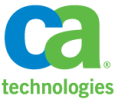sponsors
usenix conference policies
Getting to Senior: Sysadmin Level IV and Beyond
Harding Room
The USENIX Short Topics in System Administration book Job Descriptions for System Administrators is a fine work, and one might think that it could be used as a roadmap by sysadmins looking to advance their careers. However, the book limits itself to the words that might appear in a job posting, and is necessarily concise. Furthermore, the book emphasizes specific technical skills without much emphasis on the myriad "soft" skills a senior admin needs. A good senior system administrator needs to know more than just what's in the job description, and needs to know why these additional skills are required.
So what's a junior or mid-level sysadmin to do? Why, take this tutorial, of course!
Adam will go far beyond just reading the requirements listed in the book by providing an analysis of what is meant by the requirements and why a broad range of skills is often necessary to meet a single requirement. "Hard" skills will be balanced with "soft" skills such as professional ethics, job performance, and conduct in the workplace. To some attendees' dismay, Adam will also explain why a senior system administrator needs to be good at talking to both the least skilled users and the highest executives, and why being able to talk to these people is even more important for the most senior administrators than for the most junior.
Junior and mid-level sysadmins who want advice and direction on how to advance their careers.
The skills you need to learn, as well as an understanding of why you need to learn them and why many of those skills have more to do with business and management than system administration; ideas for how to go about learning what you need beyond this course.
- "Hard" skills, "soft" skills
- The LISA Job Description Levels
- Working definitions
- Aim of this talk in terms of these definitions
- "Hard" skills
- "System" knowledge
- User commands
- Administrative commands
- Boot process, run levels, and init files
- Technologies (RAID, back-ups, etc.)
- Theory
- Implementation
- Configuration management (systems)
- Networking
- Hardware
- Protocols
- Applications
- The kernel
- Layout/data structures
- Filesystems
- Devices
- Programming skills
- Shell (and awk and sed and...)
- Perl
- Python, Ruby, and others
- C and maybe assembler
- Basic S/W engineering
- Revision control
- Configuration management (software)
- Knowing when to get help
- Standards
- What's on your bookshelf
- "Understanding the system"
- "System" knowledge
- "Soft" skills
- The real role of a sysadmin
- Understand business
- Attitude and professionalism
- Interacting with customers
- Professional growth
- Learning
- Getting help
- Conferences and training
- Going beyond Sysadmin Level IV
- "Slightly squishy" (not hard, not soft—or both)
- Project management
- System design and analysis
- Technical
- Business (cost/benefit)
- Budgeting
- More interacting with customers
- Interacting with management
- Professional growth (again)


























connect with us